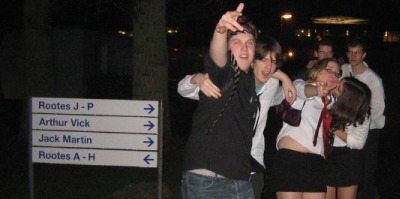Skool Dayz teaches us a bad lesson
[dropcap]T[/dropcap]here are fancy dress trends which come and go and have little lasting impact, but this one is different. To dress as a child and go out to a nightclub sends a strong message to survivors of abuse. It’s not one you might wish to be sending.
The impact of nights such as Skool Dayz, however, goes further than the individual. It creates a perception at Warwick and beyond regarding what we are willing to condone concerning the sexualisation of children. Events like Skool Dayz may appear to be “just a bit of fun” but the link between sexed-up costumes and children is not one I am making suspect – it exists strongly, already and events such as this actively normalise the belief some already hold that this link is acceptable.
This perception is undeniably coloured by the murky backdrop of Operation Yewtree and the Rotherham enquiries. Collectively, upwards of 2,000 victims came forward to report abuse at the hands of treasured entertainers, starting with Jimmy Savile who committed sexual assaults for the majority of this career in the BBC studios, in hospitals, even in Broadmoor. The victim count for Savile alone reached over 500. Following the first unapologetic public revelation that this had been going on in Mark Williams Thomas’s ITV documentary Exposure: The Other Side of Jimmy Savile broadcast in October 2012, the reaction was remarkable. Within hours, the public’s response was almost unanimously not on the side of their television favourites, but of the victims.
The public swell of anger on their behalf played a huge part in giving others the confidence to come forward.
In reaction to the Rotherham investigation we saw another overwhelming surge of support and public empathy. It is now difficult in the light of these events to discuss widespread sexual abuse in the UK today, without referring to these cases. They filtered into the national consciousness and blew open the discourse on abuse. Why then, when the perception of non-judgmental support is evidently key in giving victims the space to step forward, are we still hosting events which directly link adult behaviours (such as drinking, clubbing, even pulling), with children?
The faith that they will be believed is pivotal is giving victims the courage to come forward, not just around child abuse but following any form of sexual violence – this is undeniable.
The Guardian newspaper stated that throughout 2013 following these cases, the number of rapes reported to the police rose by 29% with 73% of the 5,020 additional reports being recent occurrences not connected to Operation Yewtree.
If public solidarity with victims of sexual violence illicits such a strong response, it begs the question why events such as Skool Dayz are allowed to continue. They send a strong and adverse message to victims of abuse that the link between school uniform and adults behaviours in not only acceptable, but is seen by their peers as simply tongue in cheek.
Skool Dayz does not directly harm children, to suggest such would be laughable. It is, however, normalising early sexualisation. Normalisation leads to a desensitization, in turn to widespread acceptance.
It is a choice not to attend, but there are still posters around campus, photos on news-feeds, and excited talk amongst peers, which again beat home the perception that those around us see early sexualisation as acceptable. You yourself may not have direct experience of the issues raised, but Yewtree and Rotherham opened the dialogue about abuse and raised awareness.
Such a platform has been a long time coming and is desperately needed, and to continue with the tired cliché of ‘naughty schoolgirl’ is not only boring and outdated, but harmful to this discourse.
I understand the appeal of the music, socialising, alcohol, but have we really exhausted every other theme? If it simply cannot be conceived to go to a fancy dress night in something which isn’t sexually provocative, then at what low point did children seem like a good idea?
I want to attend a university which is inclusive, socially aware and forward-thinking. At the moment, that’s not the message my university is sending me.

Comments (1)
Interesting article, you could do another piece showing how the student body is socially unaware by the horrifyingly few people wearing poppies or seeming to observe the 2 minutes silence.